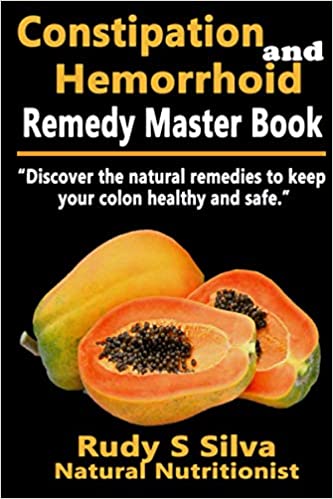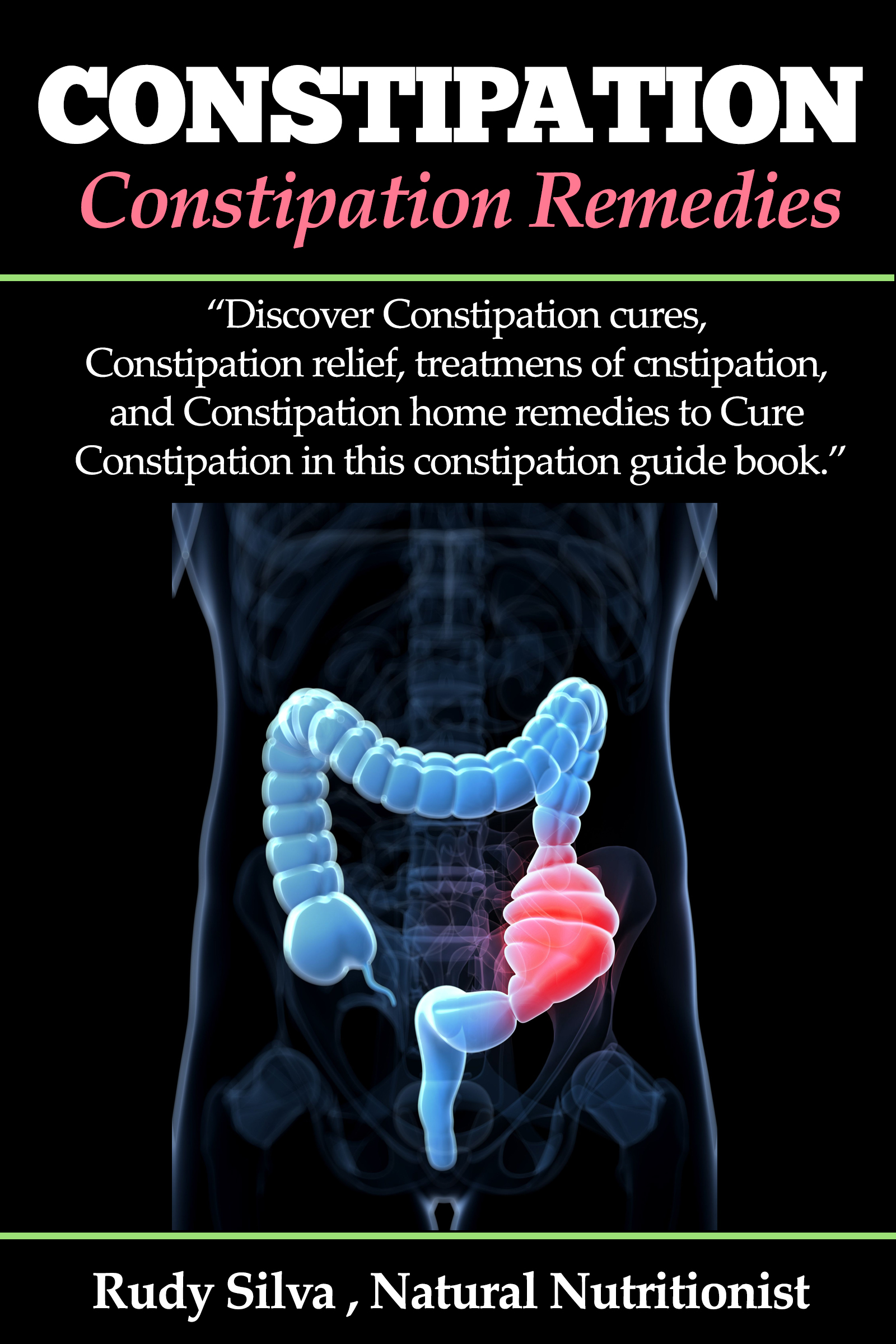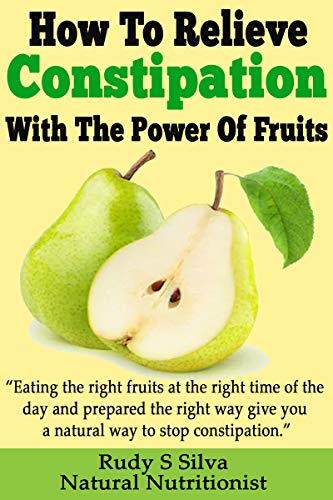Vitamin and Mineral Constipation Remedies Unknown to most Doctors – 1

Minerals
Minerals help the body produce energy and build bones, blood, and cells. They are found in the blood and lymph liquid and cell walls. They help in nerve transmission and muscle contractions in your colon. Minerals are used with vitamins and other nutrients to form compounds that are essential for your body’s health.
Your body cannot create minerals so you have to get them from the food you eat or through supplements.
Vitamins
Vitamins do not provide energy for the body, they are not found in our tissue, and they do not build cells, but help in converting the food we eat over to nutrients that our body can use. This means they help enzymes break down our food – protein, fat, and carbohydrates. They are used in many chemical reactions that occur in your body. Your body can make only a few vitamins.
Mineral and Vitamin Supplements

The various minerals and vitamins recommended here should be taken individually or as a multi-mineral complex or as a vitamin complex. Avoid a supplement that contains both vitamins and minerals. There is some loss in the effectiveness of individual vitamins and minerals when they are combined in multiform. Use capsules for best results because capsules are filled with powder. Capsules dissolve quickly and so does the powder.
Some hard, tablet supplements may not dissolve completely in your stomach or intestines and flow into your colon and out your rectum.
Minerals In Fruits and Vegetables
Minerals in produce are the best minerals to take. These minerals are in the form that nature created and is exactly what the body needs. They are electromagnetically charged and have a life force that is provided by the plant. This life force quickly decreases after the fruit or vegetable has been picked. Therefore, it is always recommended to eat fruits or vegetable soon after they have been picked and not to cook them.
Electrolyte Minerals

It is best to take liquid electrolyte minerals. In this form, minerals have an electrical charge and are ready for use by the body. Electrolyte minerals when placed in the mouth are absorbed quickly through the mouth lining and lining of the gastrointestinal tract as they travel towards the colon.
Minerals help to electrify the body. They improve brain function, nerve activity, blood structure, body structure, and body calmness.
Health Tip: Add minerals to your diet by eating raw fruits and vegetables and through supplements. Minerals ensure your colon has the proper tone and functions and this minimizing constipation.
In I. Gerald Olarsh, N.D.’s pamphlet called, Electrolytes, he points out that,
“Electrolytes in the body are minerals such as sodium, potassium, chloride, etc. that are dissolved in the blood. When the electrolytes are dissolved they break apart into charged particles called ions.
The ions carry either a negative or positive charge. These charged particles create electricity that helps run the bodies of animals and humans. Electrolytes are the basis of good health because they are used in the maintenance and repair of all tissue, the utilization of amino acids, and as the basis of every physical and neurological function…”
The Next Best Mineral Supplements
If electrolytic minerals are not available, used chelated minerals. These minerals are attached to amino acids making them magnetic, which allow them to flow right through the intestinal walls, without having to be digested.
Look for minerals such as,
- Calcium aspartate
- Calcium gluconate
- Calcium Citrate
Mineral Absorption
Most minerals are absorbed in the last part of the small intestine and the beginning of the large intestine, your colon. When your colon walls collect layer upon layer of waste, it affects the absorption of the minerals you consume. When this happens, your body will be deficient in minerals and your appetite will be larger than normal.
Method 46: Brewer’s Yeast
Brewer’s Yeast contains all B vitamins, except B12. It also contains many vitamins, minerals and is high in amino acids.
Brewer’s yeast can help to ease, reduce, or clear your constipation. If you can handle the taste, add it to your juices morning and night.
When you first use brewer’s yeast, it will create gas in your colon. Brewer’s yeast supplements your good bacteria in your colon, increasing its count. This increase in good bacteria activates a battle between the good and bad bacteria creating gas as a by-product. Keep using brewer’s yeast until the gas stops. This may take a few weeks but you are doing one of the best things you can do for your health – increasing good bacteria and reducing bad bacteria.
You can improve the benefit of using brewer’s yeast by eating cultured yogurt or supplement good bacteria between meals. You want to do this between meals, so when you take your supplement your stomach does not put out too much HCl acid, which would kill the supplement.
Health Drug Alert: If you have gout or are taking monoamine oxidase inhibitors do not take brewers yeast.
Method 47: MSM
MSM stands for methyl sulfonyl methane. MSM is organic sulfur. It provides many benefits in the body and is widely used as an anti-inflammatory and is especially useful for arthritis pain. MSM is used in all body cells and tissue including joint tissue
MSM in your colon stops or blocks the activity of cholinesterase (ko-li-nes-ter-ace.)
What is cholinesterase?

Our nervous system is composed of a network of nerve cells, which start at the brain and end on all parts of our body. It is nerves that direct muscle contraction or expansion. After the muscle completes its movement, an enzyme cholinesterase is released, which stops the muscle from moving again. Without the nerve signal blocking cholinesterase, the muscle would continue to move nonstop.
MSM is useful in clearing up constipation. When I have used
MSM, up to 6000-8000mg each day, I have experienced up to 3-4 bowel movements each day. As MSM blocks the activity of cholinesterase, it allows more peristaltic action to occur in your colon. This results in more bowel movements.
Using 2000-4000 mg of MSM keeps my bowel movements to 2-3 times each day. Of course, for each person, the amount will be different.
The action that MSM has in your colon is useful for older people who have less nerve signals for peristalsis. Cholinesterase stops the few peristalsis signals older people have, thus creating constipation.
In S.W. Jacob, M.D., R.M. Lawrence M.D., Ph.D., and M.
Zucker’s book, The Miracle of MSM, 1999, they say, “As a dietary supplement, MSM offers great potential for anyone with constipation. MSM produces a general “tonic” effect in the bowels and normalizes bowel function, particularly for older individuals. We have given MSM to nursing homes, where constipation is a common problem. The nurses have said that MSM works well for patients, even for individuals not responding to Metamucil or stool softeners.”
Rich distributing has good quality products. I have always received good service and quick shipping. I recommend you buy the MSM torpedo tablet. It is a 1000 mg flat oval tablet. This allows you to take 4000-5000 mg of MSM by only taking 4-5 tablets. They are easy to swallow.
Health Alert: MSM has not been evaluated for effects during pregnancy so it is best not to use it during this time.
Method 48: Vitamins
The following vitamins help in normalizing and clearing constipation:
Vitamin A
Vitamin A should never be taken by itself. It should be used with other vitamins or taken with food or with fruit snacks.
When taken alone, Vitamin A will putrefy in your colon creating toxic chemicals that may get into your blood.
Vitamin A helps to protect your mucous membrane along the gastrointestinal tract from bacterial attacks. It is also effective in reducing kidney and gallbladder stones.
Vitamin A is essential for a healthy liver. For some individuals taking vitamins daily would eliminate constipation.
Vitamin A is an important vitamin, which helps to improve your immunity. Since your colon is an important part of your immune system, it is recommended you eat those foods, which are high in Vitamin A or to use a Vitamin A supplement. Vitamin A will strengthen your colon.
Vitamin A also helps you absorb protein in your small intestine. Any protein that is not absorbed will move into your colon undigested. In this form and in your colon, this protein decays producing highly toxic material that can cause serious illness over time.
Health Alert: If you are pregnant or planning to get pregnant, do not take more than 5000 IU each day to avoid birth defects.
If you have any liver disease, consult your doctor before taking vitamin A.
Foods high in vitamin A are Green leafy vegetables, carrots, eggs, yellow vegetables, butter, liver, cabbage, prunes, celery, parsley, spinach, kale, cheese, tomatoes.
B-Vitamins
B-vitamins are needed to feed your colon wall nerves so they can flex and move naturally. Without these vitamins, your colon walls cannot move in a natural rhythm.
Health Tip: Eat less sugar and sweets, since these foods use up B-vitamins when being digested.
Take Thiamine (B1) 100-300 mg each day since it helps to correct constipation by stimulating peristalsis.
Inositol – Helps stimulate your colon walls. Inadequate inositol can be associated with constipation. Drinking too much coffee reduces inositol from the body. Use 100 – 300 mg each day
Folic Acid – If you have constipation and have leg cramps, you may need folic acid. In this case take 400-800 IU of folic acid each day.
Pantothenic acid – 5mg to 3 grams before bed improves the health of your colon.
Vitamin C
Taking Vitamin C will help to keep you regular. It is a gentle laxative when taken in high doses. When you become constipated, increase your use of Vitamin C. Add 500 mg each day until you reach 5000 mg. At some point, you may experience diarrhea. When this happens, just back off on the dose by 500 mg. When your constipation is cleared go back to your maintenance dose.
Health Alert: Vitamin C in doses greater than 500 mg is not recommended if you have a kidney stone, liver disease, or gout.
Health Drug Alert: Vitamin C may increase your absorption of aluminum if you are taking antacids. Take vitamin C two hours before taking antacids to prevent this problem.
Recommend vitamin C dose is 2000 – 3000 mg each day taken with meals. Pregnant women can take up to 500 mg each day.
Method 48: Minerals – Calcium
Calcium
In your colon, calcium combines with excess bile and decaying fat to form a harmless insoluble soap, which is excreted with your stool. This helps to keep your colon clean.
Most Nutritionists recommend you take 1000 – 1500mg daily of Calcium. Because Calcium can cause constipation, it is necessary to take 500 – 1000 mg of magnesium at the same time you take Calcium.
Health Tip: Space out your intake of calcium over the day.
Take only 400 to 600 mg each time. Also, take some time-out when taking calcium and other vitamin supplements. In a month, take 2-3 Sundays or Saturdays of from taking vitamins.
Avoid taking calcium carbonate, which will reduce the times you will have a bowel movement. Avoid, also, taking calcium when eating foods that contain oxalates phosphates, or phytates – cooked spinach or rhubarb. They tie up calcium and are excreted with the fecal matter
Health Alert: If you have cancer, kidney disease, irregular heartbeat, or hyperparathyroidism consult your doctor before using calcium supplements.
Health Drug Alert: If you are taking a thyroid hormone, beta- blockers, calcium-channel blockers, or an antibiotic, calcium supplements can interfere with absorption of these drugs.
It is best to take calcium around 2 hours before or after taking these and other drugs.
Avoid taking calcium citrate with aluminum-containing antacids. This combination has been seen to increase your body’s absorption of aluminum. Aluminum has been associated with senility and Alzheimer’s
Health Tip: Calcium is safe for pregnant women and they should take an adequate amount of calcium.
The best calcium to take is calcium gluconate, orotate or aspartate. The gluconate type is similar to the calcium you get from milk and some vegetables. It is a gentle calcium and is easily absorbed by children and adults with weak digestion.
The foods to eat for good calcium are:
Goat milk, egg yolk, fish, lemons, raw rhubarb, cheese, skimmed milk, bone broth, seeds, dulse, kelp, greens, nuts, cauliflower, celery, cottage cheese, gelatin preparations, brans,
Method 49: Mineral – Magnesium
Magnesium, a gentle laxative, helps to prevent constipation by relaxing your colon walls when you are under stress, have anxiety, or have too many worries. It normalizes tension on colon walls allowing for a normal peristaltic action.
Because magnesium attracts water, you can bring in more water into your colon by taking magnesium supplements or by eating foods, which are high in magnesium. Water in your colon makes your stools softer and allows your colon to absorb water from your fecal matter if your body needs more water.
How do you know if you are short on magnesium? You will get cramps in your calves at night or so-called “Charlie horses.”
Or, you will feel sore after some mild exercise or activity.
Take 400 mg in the morning and 400 mg in the evening of
Magnesium gluconate, or citrate.
Jesse Lynn Hanley, M.D., in his book call, Tired of Being Tired, 2002, gives another way to take Magnesium to relieve your constipation,
“Take at bedtime. Begin with 200 milligrams magnesium oxide or magnesium citrate—you may increase the dosage in 200-milligram increments until your bowels move regularly. The dose for magnesium is individual, so begin low and increase the dosage as needed. Reduce the dosage if you experience loose bowels. Unlike irritating laxatives, magnesium does not create laxative dependency.”
Health Drug Alert: If taking hypoglycemic drugs, magnesium may increase the absorption of these drugs. It is recommended you consult with your doctor on the effects of magnesium with the type of hypoglycemic drug you are taking.
If taking magnesium, do not take it within 2 hours of taking any kind of drug. If you have severe kidney or heart disease, you need to avoid magnesium and consult with your doctor on its use.



